HOME FREIE KUNST GRAPGIC DESIGN KONTAKT
Verlorene Bücher - Lost Books
englische und deutsche Version
|
|
hardcover (German version) Softcover (English version) DinA 4 50 Seiten Digitaldruck 50 pages digital print Fotografien / photographs 20,- € + Versandkosten (+shiping)
siehe auch: Lost books the photographical session
|
|
Vorwort
Margareta schrieb ein
mehrbändiges Kochbuch, denn sie war die Köchin vom Bahnhofshotel! Es
war 1911 in Hohenwestedt, das ungefähr in der Mitte von
Schleswig-Holstein liegt.
War es ein gutes Hotel? Wurden ihre
Ragouts
bis weit über die Ortsgrenzen gerühmt? Das wissen wir nicht. Aber wir
kennen ihren Namen, sehen ihre Handschrift, und wenden die Seiten
ihres Buches. Manche Blätter haben selbst die Farben des gerade recht
gebackenen Hefekuchens angenommen, marmoriert von spritzendem Fett
oder den suchend blätternden Butterfingern. Anna bekam, wie früher
fast jedes Mädchen,
1917 ein Poesiealbum und gab es noch
im selben Jahr sämtlichen Freundinnen und
Mitkonfirmandinnen zum
Hineinschreiben. Sie alle haben viel Mühe und Artigkeit auf ihren
Eintrag verwendet, jede auf ihre eigene Weise. Dorotté schrieb ihr
Liederbuch
(das ja eigentlich ein Heft ist) randvoll. Das war 1837 in
Salzhemmendorf, und Bertha begann 1857 das
Album
mit geprägtem Ledereinband und dem prachtvollen hellblau-türkisenen
Vorsatz einigen Auserwählten rund um den Bodensee zu geben. Ein
Jahrzehnt später begann sie selbst damit, auf manchen der viel zu
vielen leeren Blätter in zierlicher Deutscher Kurrent Gedichte
abzuschreiben. Gefleddert liegt das Buch vor uns, von eingesteckten
Schmuckseiten zeugen nur noch die säuberlich geführten Einschnitte,
andere Blätter sind lieblos herausgeschnitten. Alle diese Bücher und Hefte überdauerten und
fanden ihren Weg durch die Jahrhunderte, bis an den
unwahrscheinlichsten Ort überhaupt, eine Höhle an der atlantischen
Felsküste im äußersten Norden Schottlands. Nur bei Ebbe zugänglich,
kreiert der Meereszyklus tief im Innern ungestört bizarre Farben und
Formen, ein surreales, zeitloses Versteck. Hier ist alles feucht,
lichtlos, Tropfen fallen unvermittelt von der Höhlendecke. Alle zwölf Stunden kehrt das Wasser zurück und
putzt wie ein geduldiger Lehrer die Tafel frei, um sie bis zum
Schulschluss mit anderen Lektionen zu füllen, die stets von neuem das
Immergleiche lehren.
Kaum ein Ort könnte für Bücher, Tinte und
Papier ungeeigneter erscheinen, und doch werden genau ihm für den
kurzen Moment des Kameraklicks die bibliophilen Kostbarkeiten
anvertraut.
|
|
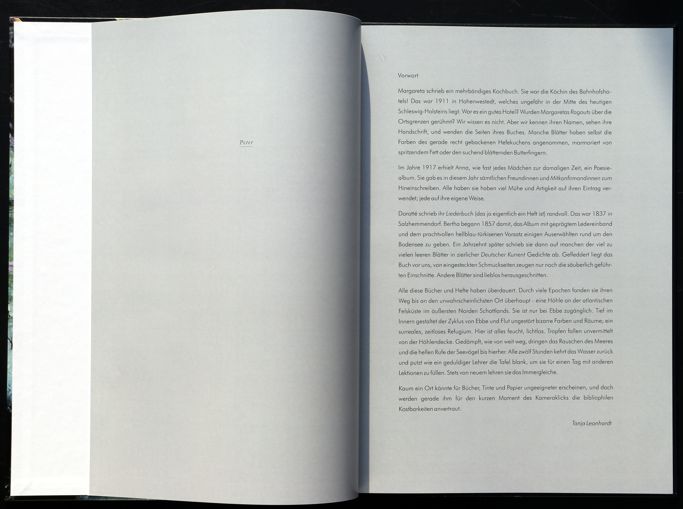 |
|
|
Preface
Margareta wrote a cookbook of several volumes. She was cook of the
station hotel. That was in Hohenwestedt, a small town in northern
Germany, back in 1911. Was it a good hotel? Were Margareta’s ragouts
praised across the borders? We do not know it. But we do know her
name, we see her handwriting and turn over the pages of her book. Some
of them have taken the hue of nicely-baked yeast braid, coloured by
splashing grease or scrolling, butter-stained fingers.
Like most girls back in 1917, Anna was
presented with an autograph book. As usual, she passed it on to all
her friends and fellow confirmands
Mitkonfirmandinnen
to enter some lines. Each of them took great
pains to do so most meticulously and in her very own, distinctive
manner.
In Salzhemmendorf in mid-west Germany,
Dorotté completely filled her songbook
Liederbuch – which is actually a
booklet – in 1837. Twenty years later, Bertha started to hand her
leather-clad album
on to some close friends around Lake Constance. Far too many pages
remained blank, so she copied several poems to cover the void a decade
later. Like all writers of this collection and that era, she used the
delicate German hand.
The once precious volume with its gorgeous, turquoise book-ends has
suffered severe damage over the decades. The only surviving traces of
some ornamented pages are a couple of neat incisions.
Other pages were ruthlessly cut out.
All these books and booklets have remained. Through the passage of
time they have found their way to the most unlikely of places – a
remote cave at the rocky coast of the Atlantic Ocean, far to the north
of Scotland. It is accessible only at low tide. Deep within the tides
incessantly create bizarre
colours, shapes and spaces. It is a timeless, surreal refuge; dark,
cold, and wet. Drops keep falling from the cave roof. From the
distance the rolling of the waves and the high-pitched cries of the
sea birds can be heard.
In the daily rhythm the sea returns and -
just like a patient teacher - cleans
the blackboard to fill it again for another day with new lessons.
Time and again they teach the
very same.
Hardly could any other place seem less suitable for books, paper, and
ink. However, it is just this place the bibliophilic treasures are
entrusted to the little moment of the camera shot.
|
|
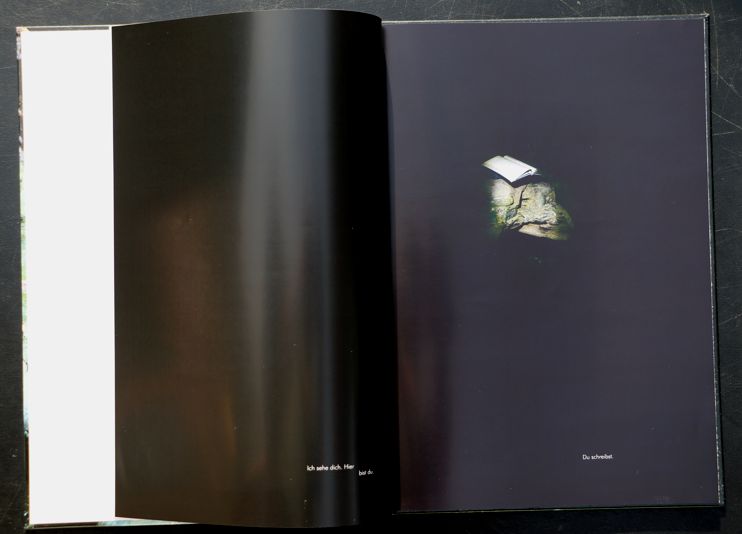 |
|
|
|
|
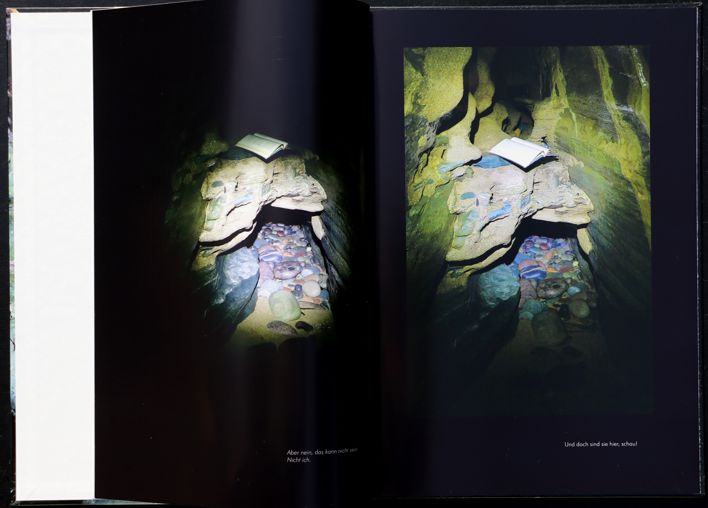 |
Ich sehe dich. Du schreibst... I can see you. You are writing... |
|
|
|
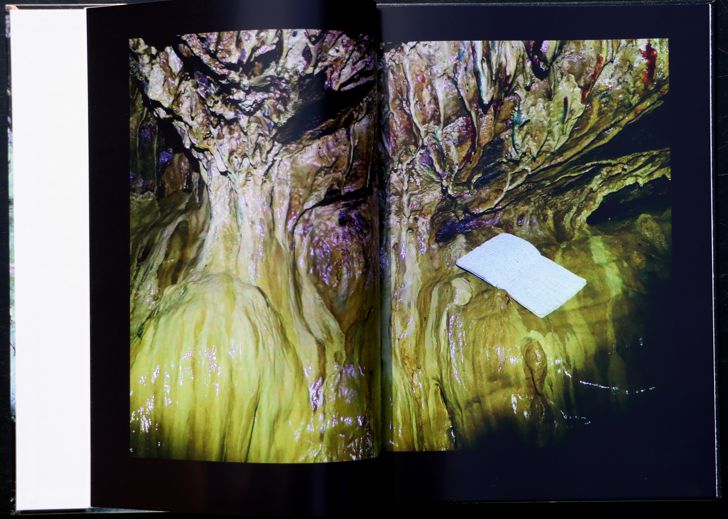 |
|
|
|
|
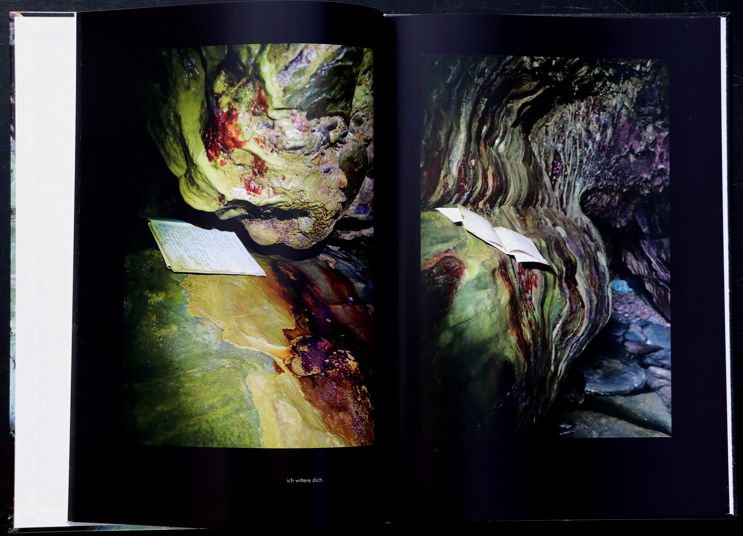 |
ich wittere Dich. |
|
|
|
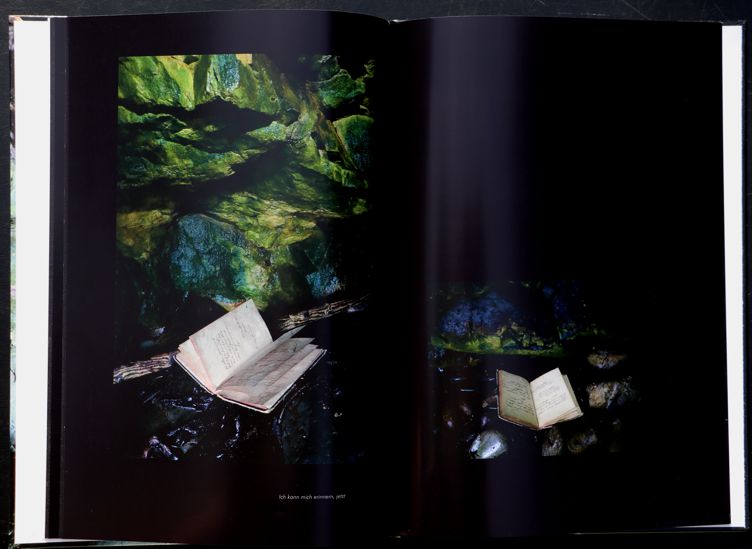 |
I can see you.
You are here.
You are writing.
Why, no.
It cannot be.
Not me.
But still
they are here,
look!
The books, the writing, the words.
The “I” who wrote this has gone long since.
The nib has gone rusty.
The trace is cold.
Yes, you are right.
However, I still get wind of you.
You are leaning on the inner face of a feeling.
No doubt about it.
Ah, I can remember now.
Even though time is no longer a street to me,
but rather an ocean.
I do recall it again, how lovely!
That little, lost
anchor.
Maybe a ship’s bell, too
And it still reflects you
very clearly
I see you. |
| |
|
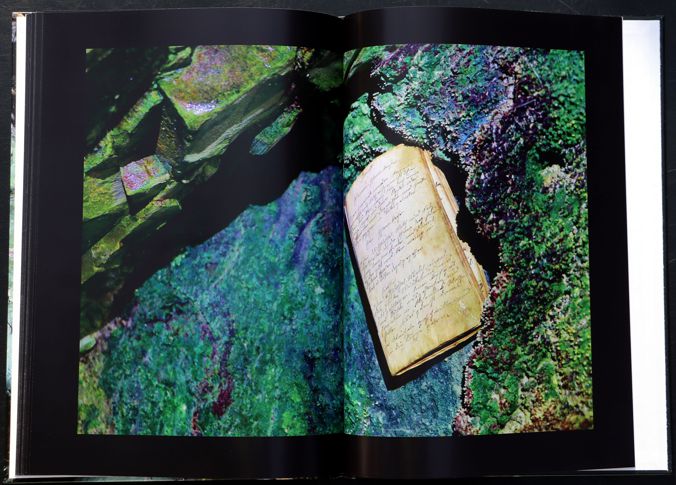 |
|
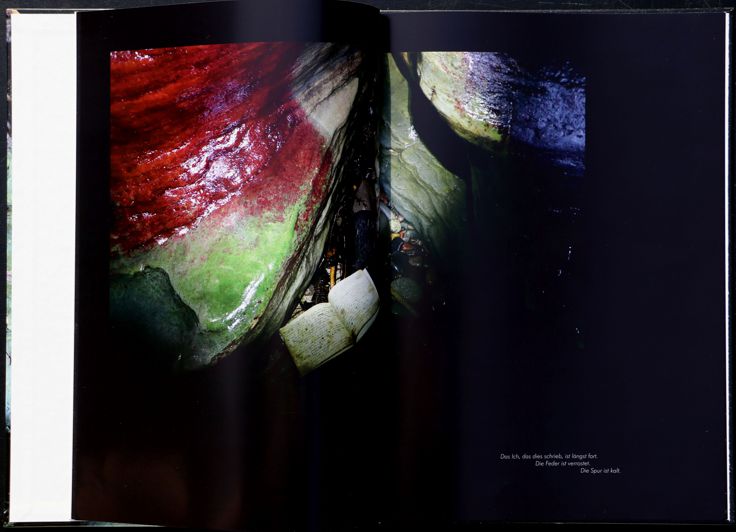 |
Ich sehe dich. Hier bist du. Du schreibst.
Aber nein, das kann nicht sein.
Nicht ich.
Aber sie sind doch hier, schau! Die Bücher, die Schrift, die Worte.
Das Ich, das dies schrieb, ist längst fort.
Die Feder ist verrostet.
Die Spur ist kalt. Ja, das mag sein. Trotzdem, ich wittere dich noch. Du lehnst an der Innenseite eines
Gefühls. Ganz unbestreitbar.
Jetzt kann ich mich erinnern.
Obwohl die Zeit für mich
nun ein Meer und keine Straße mehr ist.
Ich weiß es wieder, wie nett!
Dieser kleine, verlorene Anker. Vielleicht auch eine Schiffsglocke, und sie spiegelt dich noch immer ganz
klar.
Ich sehe
dich. |
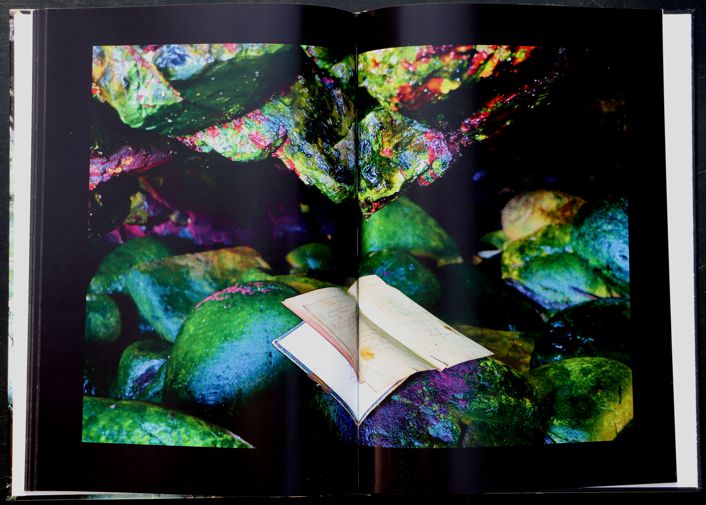 |
|
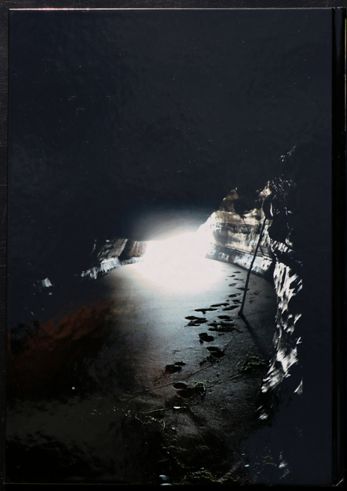 |
back Rückseite |